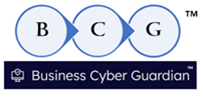I would also include process scheduling for access to and allocation of resources such as CPU, memory and peripherals From: open-regulatory-compliance <open-regulatory-compliance-bounces@xxxxxxxxxxx> On Behalf Of Dirk-Willem van Gulik via open-regulatory-compliance
Sent: Tuesday, March 25, 2025 12:30 PM
To: Open Regulatory Compliance Working Group <open-regulatory-compliance@xxxxxxxxxxx>
Cc: Dirk-Willem van Gulik <dirkx@xxxxxxxxxxxxxx>
Subject: Re: [open-regulatory-compliance] Important and Critical product categories - Operating systems On 25 Mar 2025, at 17:24, Tobie Langel via open-regulatory-compliance <open-regulatory-compliance@xxxxxxxxxxx> wrote:
This is the definition of operating systems in the draft implementing act: Software products with digital elements that control the execution of programs and that may provide services such as resource allocation, scheduling, input-output control, and data management.
This category includes but is not limited to real-time operating systems, operating systems for servers, mainframes and mobile devices, network operating systems and general-purpose operating systems.
Are you all comfortable with this definition or do you have concerns with it? If so, what are those concerns and how would you modify the definition to address them?
I think what we commonly see as an OS has two extra functions - - it abstracts or provides an interface to the underlaying hardware (such as disk, network, busses) that is generic and abstracts the details of this away. - it provides certain common services; such needed for time, access, authentication, authorisation, cryptography, resource management, power/lifecycle management, logging, boot and so on & provides an abstracted interface for this |



